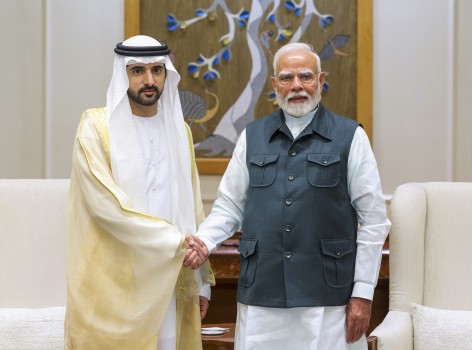A file photo of Drone.
MUMBAI (BNS): With opportunity thriving high, India Inc is making rapid strategic moves on the defence business. The defence business is growing at a astonising compounded rate of 40-50 percent.
According to a report by English business daily Business Standard, corporations are signing joint ventures with foreign majors to tap a potential market of over Rs 50,000 crore in 5 years.
Tata group signed an agreement with US-based Sikorsky Aircraft Corporation to manufacture its S-92 helicopter cabins in India.
Tata Advanced Systems has also formed joint ventures with Israel Aerospace Industries for building unmanned aerial vehicles, missiles, radar systems.
Recently, Larsen & Toubro (L&T) announced a joint venture with European defence electronics major EADS to manufacture high-end defence electronics products.
Earlier in May, L&T, Godrej & Boyce and Tata Advanced Systems put in bids to develop and build an unmanned aerial vehicle, or drone (named Rustom), used in surveillance operations.
Mahindra Defence Systems has a joint venture with Lockheed Martin to jointly develop simulators for the Indian defence sector and with BAE Systems for building heavy artillery.
Not only that, Mahindra & Mahindra inaugurated a state-of-the-art, six-acre plant in Faridabad to make specific military manufacturing applications, including armoured vehicles.
One major reason why Indian companies step up their footprint in defence is the �offset clause�, under which all foreign companies that get a defence contract of above Rs 300 crore from the Indian government will have to bring back 30 per cent of the contract value into the country, either by way of purchases or as investments in the sector, as per the report.
Kuljeet Singh, head-defence advisory, Ernst & Young, said, �The offset clause was working out well for Indian companies in acquiring orders or signing for technologies. But for more growth, research and development (R&D) and manufacturing should be outsourced to private players. And, in turn, the companies should acquire or develop proprietary technology.�
Tata Motors, L&T, Tata Power, M&M, Godrej, Bharat Forge, Infosys, Wipro and Tata Consultancy Services are among the 12 companies that have been cleared by a defence ministry committee. For example, it has revived the Raksha Udyog Ratna (RUR) scheme which once awarded will make these companies to be treated on par with defence public sector enterprises. RUR-status companies will also be allowed to access foreign technologies and build main systems for the defence department.
Thus India Inc is sending clear messages that it is eager to manufacture military hardware comparable to the best in the world.
 Previous Article
Previous Article












The Indian Air Force, in its flight trials evaluation report submitted before the Defence Ministry l..
view articleAn insight into the Medium Multi-Role Combat Aircraft competition...
view articleSky enthusiasts can now spot the International Space Station (ISS) commanded by Indian-American astr..
view article